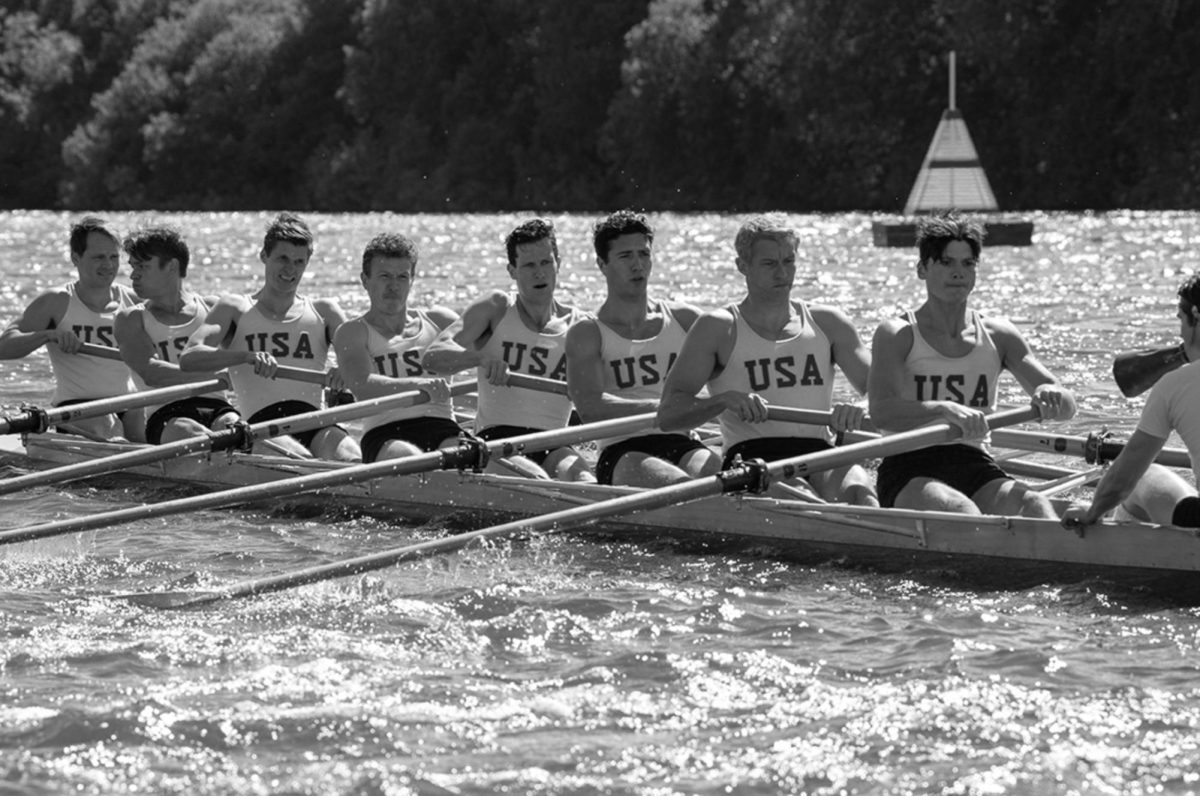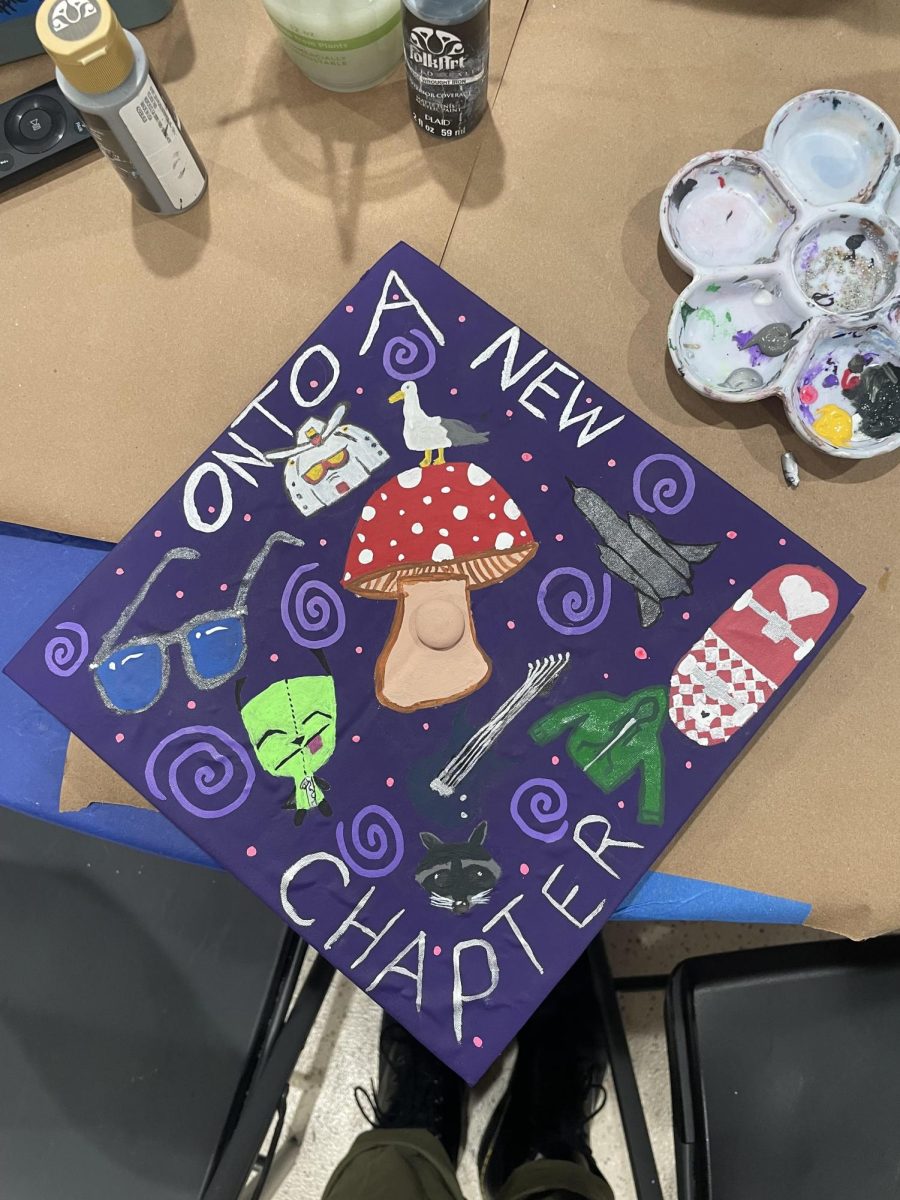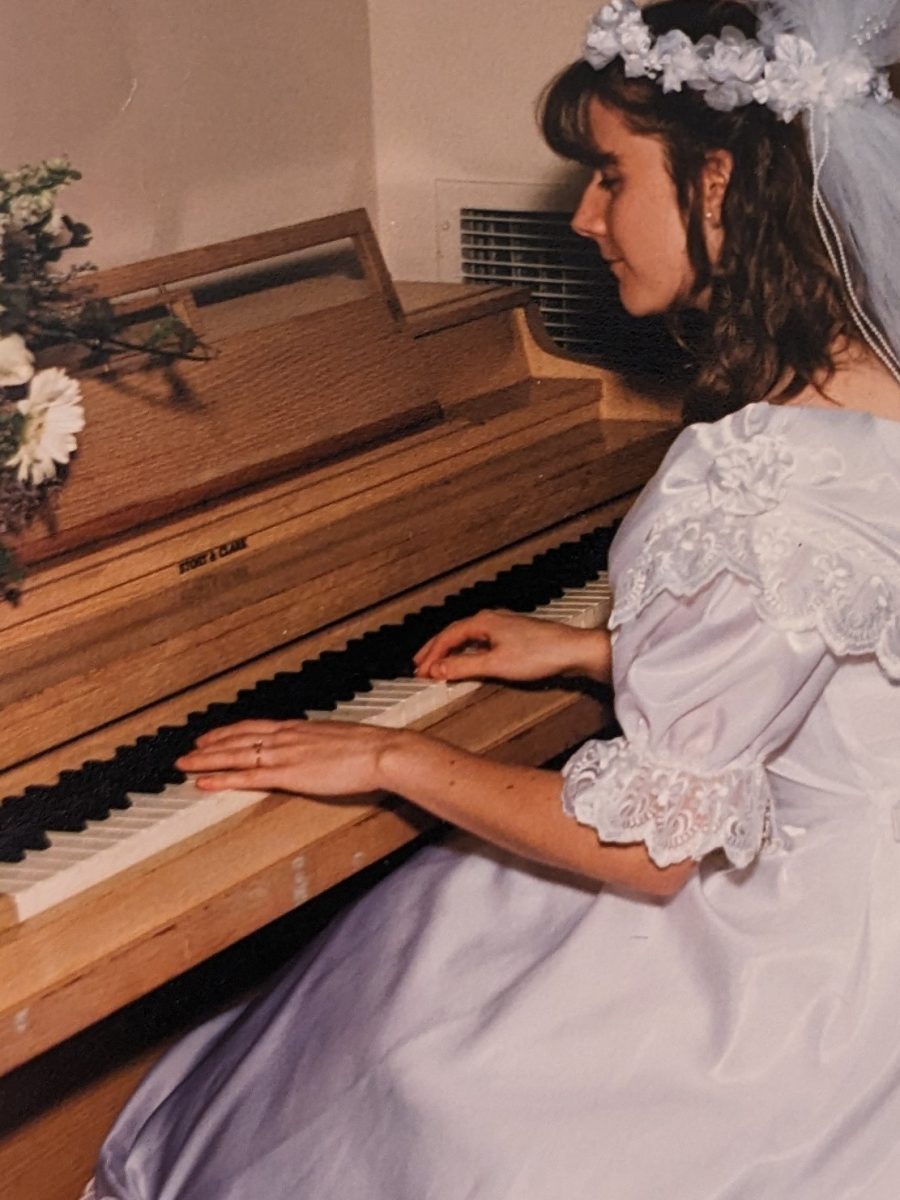Golden sunlight bounces off the water, birds chirp while hopeful soft music settles the audience into a relaxed state. An uplifting piano plays over shots of young boys rowing while older Joe Rantz, played by Callum Turner, wistfully watches over a rowing team. Rantz surveys as his grandson practices to make the rowing team and is transported back, along with the audience, to when he made the University of Washington JV rowing team in 1934 eventually making it to the 1936 Olympics in Berlin.
The opening scene of 2023’s “The Boys in the Boat,” directed by Goerge Clooney builds hope and anticipation for the triumph of the story on which this movie is based. The movie was adapted from the book “The Boys in the Boat: Nine Americans and Their Epic Quest for Gold at the 1936 Berlin Olympics,” written by Daniel James Brown, was published in 2013. Which in turn inspired this movie.
“The Boys in the Boat,” cinematically, was beautiful. And it knows it. The movie is crafty with its juxtaposition of warm and cold tones, with scenes overflowing with warm tones. Sunlight plays the main role for lighting in most of the film. Yet Clooney skillfully adds cool-toned scenes. When the JV rowing team has been selected, training starts, and the dark blues and grays ramp up with the blood, sweat, and tears the boys put in and are in full effect when the team is drained causing the audience to share the feeling of the boys. The sparing use of these colors puts the audience on edge successfully ushering us along the highs and lows of this story.
The movie’s incredible major score flows through viewers with each wave of emotion that washes over the plot going from soft, gentle piano and string instruments in scenes of calm to, roaring horns during scenes of the races. With each powerful pull of each boy’s oar the sound design of this film booms through the screen rattling in the bones of the audience. The viewers feel when each oar is in line with the rest when the boys are one with each other. Then with a quick cut, the audience is left empty with the silence of the next scene, taking the viewers right along with the quick, sharp turns of the film.
The actors sunk into their characters producing memorable performances. One of the performances that resonated with me the most was Jack Mulhern’s portrayal of Don Hume. Endearingly awkward and quiet, Hume, even with a few lines, exhibits the audience’s compassion to where we are rooting more for him than the protagonist, Rantz. Even with such few lines I found myself feeling and rooting more for Hume than I did the protagonist, Joe Rantz. Hume tears at our heartstrings when he falls ill during the Olympics. Then floods the audience with triumph as we reach the end of the final race.
Many fans of the book may have a nostalgia for the story and therefore a fondness for the movie before seeing it. I, however, came into this movie blind, having no previous knowledge of the story. But after watching the film, it is easy to feel a similar love and nostalgia. Under Clooney’s expert directing, the viewers feel as though they are a part of the team. Each victory and each loss is felt by the audience, producing an odd type of bond with each character. In some incredible way, the audience just might feel as if they just won the Olympics.









